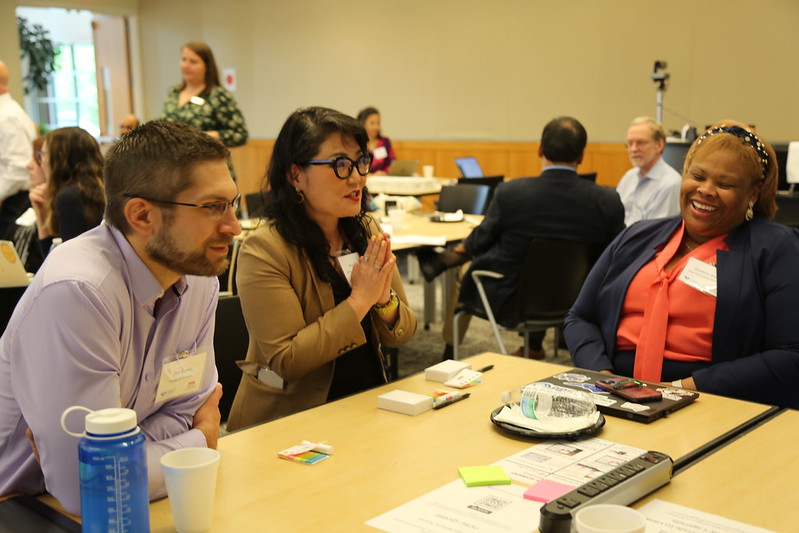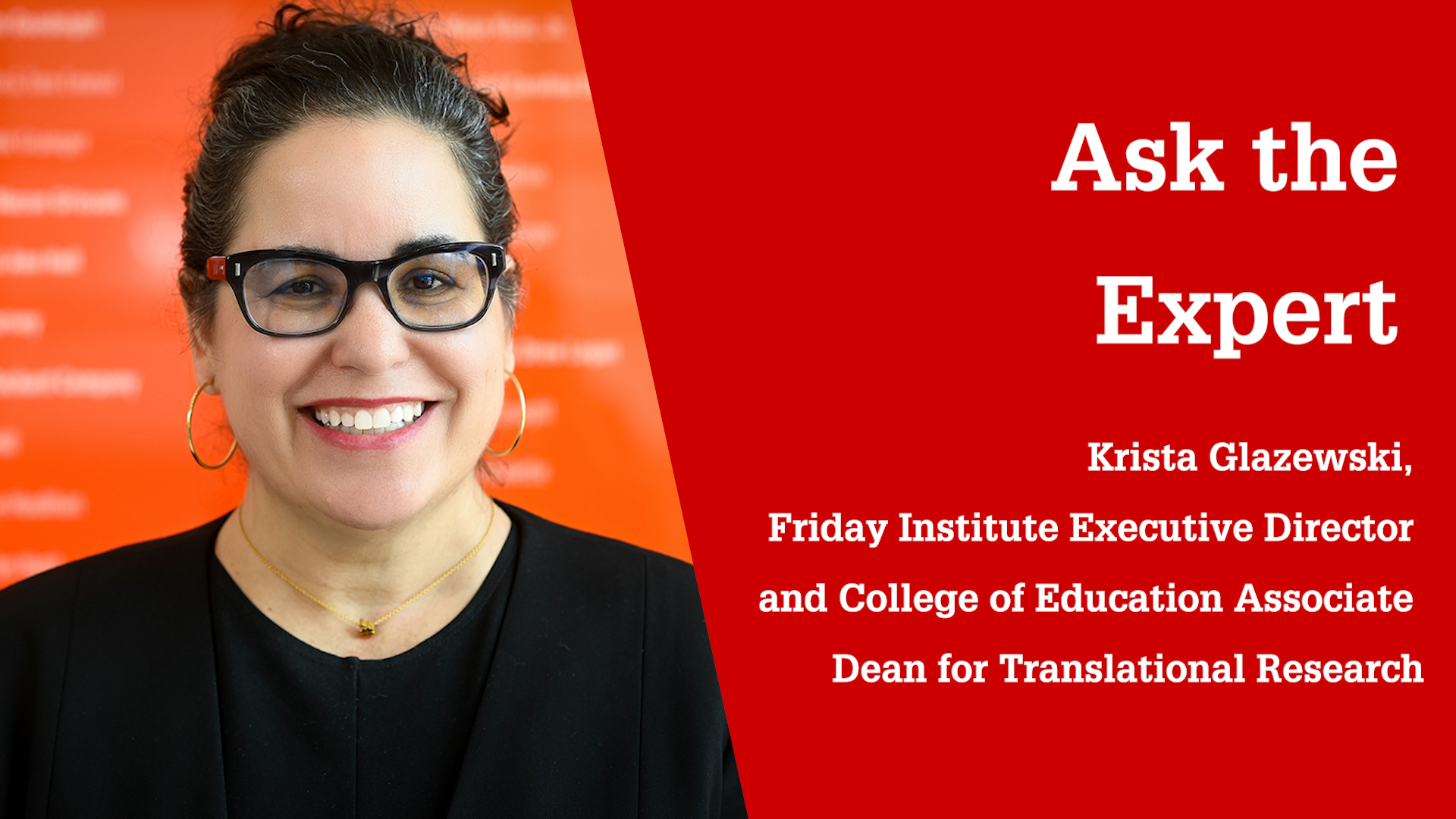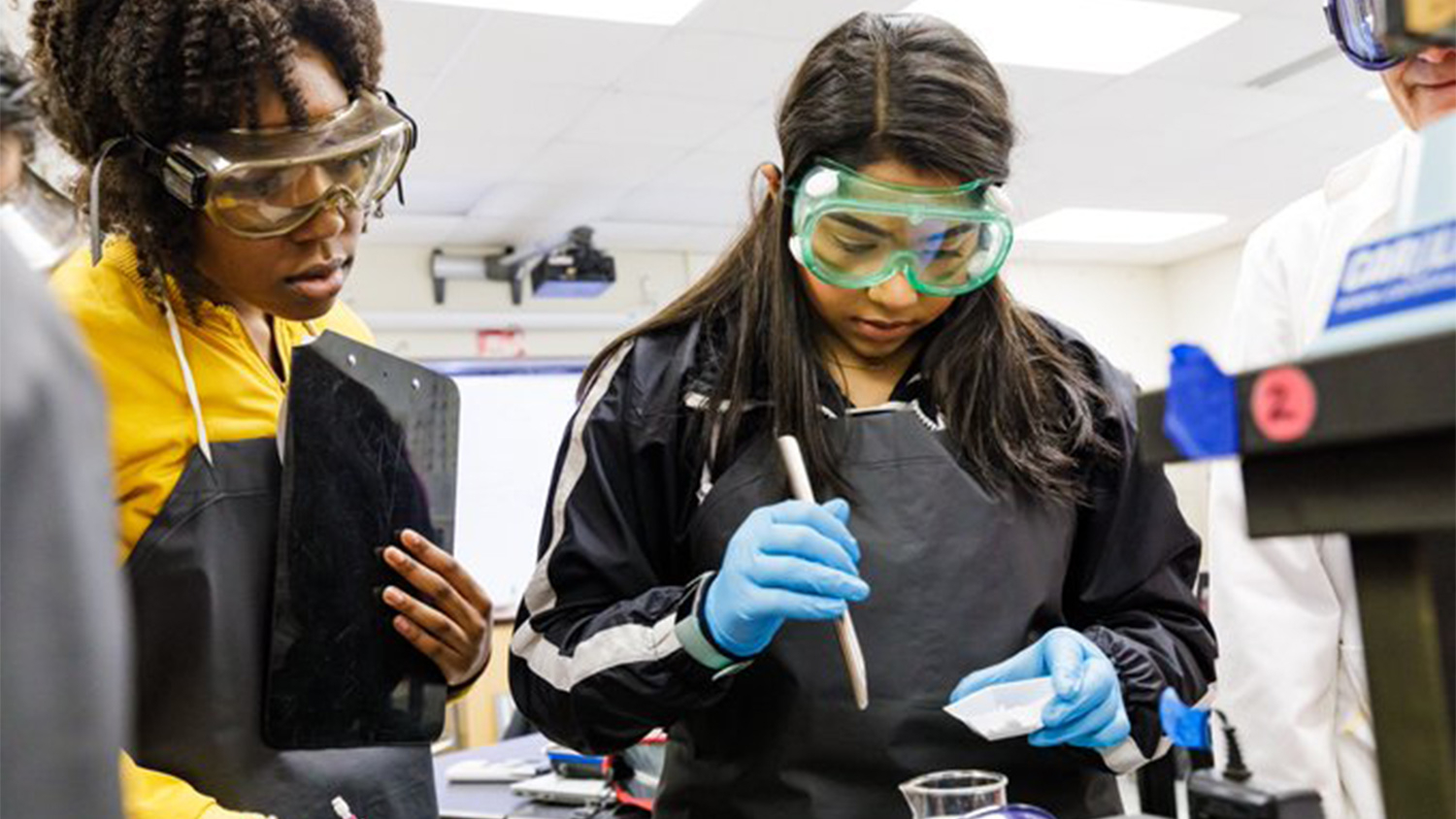Hollylynne Lee and Gemma Mojica Aim to Transform Teacher Preparation for Data Science and Statistics Education through $2.5 Million Grant
During a recent event at the National Academy of Science, Engineering and Medicine focused on K-12 data science education, Distinguished Professor Hollylynne Lee and Friday Institute for Educational Innovation Senior Research Scholar Gemma Mojica heard repeated calls related to the urgent need to prepare educators who are able to engage students in investigations of real-world issues using data.
There is a national effort, Lee said, to create and implement standalone data science courses within the high school mathematics curriculum as well as better infuse data and statistics within other courses across subjects. However, prospective teachers often have few experiences with data science and statistical content in teacher preparation programs.
“University-based teacher preparation has got to find ways to transform their programs, licensure requirements, courses and faculty preparedness to address this issue now,” Lee said.
Since 2016, Lee and Mojica have been addressing this issue through the National Science Foundation-funded Enhancing Statistics Teacher Education with E-Modules (ESTEEM) project. ESTEEM provides free, accessible tools that allow pre-service middle and high school mathematics teachers to engage with meaningful materials and has been used in courses by more than 70 teacher educators across the country.
They are now expanding this work through the five-year, $2.5 million “Collaborative Research: Enhancing Data Science and Statistics Teacher Education – Transforming and Building Community” project, funded by the National Science Foundation.
‘Our prior work has filled a gap in teacher education by providing high-quality curricular materials. All of our materials have been packaged into learning management systems that faculty can upload into their own courses,” Mojica said. “We will be expanding our materials to incorporate more practices and processes related to data science.”
ESTEEM currently consists of three modules – one related to foundations in teaching statistics and two related to important statistical topics – and incorporates use of the free, web-based Common Online Data Analysis Platform (CODAP) to investigate data. Bill Finzer, senior scientist at Concord Consortium, is a co-principal investigator on the project.
“Our team will work together to expand features and compatibility in CODAP, as well as develop data investigations and other materials to support teachers in learning to teach statistics and data science,” Mojica said.
The project will begin with an investigation of the current systems in undergraduate teacher preparation for teaching data science and statistics, with a focus on identifying problems of practices related to data science and statistics education in teacher education programs.
Future teachers, Lee said, need to experience deep engagement with investigations of real-world issues using data, so they are able to develop their own data and statistical literacies before attempting to engage their students in data investigations.
It is also important, Mojica said, that future teachers learn to use complex, multivariate, messy data to make evidence-based decisions about solving real-world problems and learn to communicate their results, propose actions for solution and even generate new questions for further data investigations.
“Engaging in these practices themselves is necessary for them to be able to design classrooms where they use these approaches to engage their own students in a data investigation process,” Mojica said. “Future teachers need opportunities to develop dispositions like being curious, creative, persistent and resilient when investigating data, which are qualities required in using large, complex data to solve real problems. Developing these characteristics for themselves is a first step in understanding how to support building classrooms where students are encouraged to tap into these qualities to critically think and make decisions from data.”
Pre-service teachers also need to become comfortable with modern ways of gathering, processing and analyzing data, as well as using modern tools beyond the standard graphing calculator to compute with and visualize data while developing their pedagogical skills, Lee said.
“Content and tool expertise need to be developed alongside pedagogical strategies for working with students, choosing meaningful contexts and tasks and understanding where students may struggle but also how students can be empowered to have new conversations about their world through data investigation,” she said. “This is only going to happen if teacher education faculty develop themselves in how to lead these experiences for future teachers, as most faculty did not have these experiences themselves in their past educational experiences.”
To help teacher educators, the project aims to build and sustain a data science and statistics teacher education networked improvement community that will reach a broad and diverse audience through the curation and dissemination of high-quality teacher education materials.
The team plans to create a robust website to host webinars and to house educational resources and curricular materials from across various projects related to data science and statistics education. They ultimately hope to also offer opportunities for educators to upload and suggest resources and materials they have found successful in their own classrooms.
To engage faculty and support their professional learning, Mojica said the project team will hold a one-day workshop for faculty prior to a mathematics teacher educators’ conference and will conduct at least three webinars each year that will be made publicly available. They also plan to host an interactive K-12 Data Science and Statistics Teacher Education convening for faculty from institutions across the country.
“We will have online spaces for the community to share resources, engage in professional learning and connect with each other,” Lee said. “Throughout the project, there will be webinars and convenings to provide forums to discuss issues and tackle problems of practice that faculty identify as some of their most pressing needs.”
The project team has already established partnerships with the National Council of Teachers of Mathematics, the Association of Mathematics Teacher Educators, the American Statistical Association and the Data Science 4 Everyone coalition. They will also draw on existing large-scale faculty communities through the Mathematics Teacher Education Partnership and Consortium for the Advancement of Undergraduate Statistics Education as well as bring together researchers and curriculum developers in K-12 and undergraduate statistics and data science education.
In addition to Finzer, Stephanie Casey, of Eastern Michigan University, and Rick Hudson, of the University of Southern Indiana, serve as co-principal investigators on the project. Callie Womble Edwards, acting director of Program Evaluation and Education Research (PEER) at the Friday Institute, and Friday Institute Research Associate Kevin Winn will direct the continuous improvement plan for the project.
- Categories:


